News
10 biggest protests in history
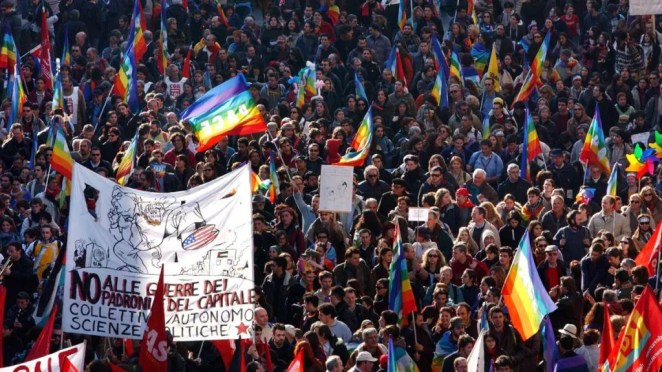
Throughout history, some of the largest protests have played a crucial role in challenging unjust laws, holding governments accountable, and promoting change. At times, these demonstrations have mobilized massive crowds, becoming pivotal moments in world history.
Even though not all major protests achieve their goals, they leave a lasting impact on society, frequently inspiring similar movements around the world and across generations.
Here are ten notable protests in modern history amid the demonstrations in Nigeria and United Kingdom.
1. Indian Farmers Protest (2020-2021)
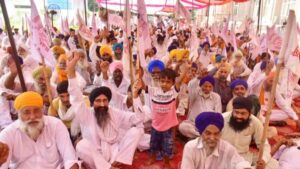
Image credit: Getty/ Hindustan Times
The Indian farmers’ protest began in late 2020, with farmers from Punjab, Haryana, and Uttar Pradesh protesting against three farm bills passed by the Indian government. The bills were seen as favoring large corporations over small farmers, leading to widespread demonstrations across the country. The protests, marked by massive rallies and a prolonged sit-in at the Delhi border, drew international attention and resulted in the repeal of the controversial laws in November 2021.
2. George Floyd and Black Lives Matter (2020)
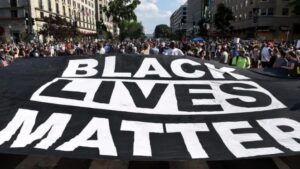
Image credit: Getty/ OLIVIER DOULIERY)
The murder of George Floyd by a police officer in Minneapolis on May 25, 2020, sparked global outrage and a wave of protests under the banner of Black Lives Matter (BLM). Demonstrators took to the streets across the U.S. and worldwide, demanding justice for Floyd and addressing systemic racism and police brutality. The protests reignited conversations on racial inequality and led to calls for reform in policing practices.
3. Women’s March (2017)

image credit: Getty/ Bettmann
The Women’s March, held on January 21, 2017, was one of the largest single-day protests in U.S. history. In response to Donald Trump’s inauguration as President, millions of people—primarily women but including supporters of all genders—gathered in Washington, D.C., and cities around the world. The march focused on advocating for women’s rights, LGBTQ+ rights, and racial equality, and became an important moment in the broader women’s rights movement.
4. Anti-Iraq War Protests (2003)

credit: Getty Images News)
On February 15, 2003, millions of people worldwide protested against the impending U.S.-led invasion of Iraq. The demonstrations took place in major cities globally, including London, New York, and Sydney. The protests reflected widespread opposition to the war, which many viewed as unjust and based on questionable evidence. This global outcry had a major impact on public opinion and policy discussions regarding the Iraq War.
5. Tiananmen Square (1989)
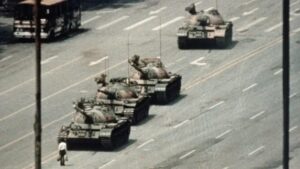
(Image credit: Getty/ Archive Photos
The Tiananmen Square protests began in April 1989 with student-led demonstrations in Beijing calling for political reform, freedom of speech, and other democratic ideals. The movement grew into a mass protest involving millions. The Chinese government’s violent crackdown in June, known as the Tiananmen Square Massacre, resulted in numerous deaths and remains a sensitive and censored topic in China.
6. The Baltic Way (1989)
On August 23, 1989, approximately two million people formed a human chain spanning over 600 kilometers across the Baltic states of Estonia, Latvia, and Lithuania. Known as the Baltic Way, this peaceful protest marked the 50th anniversary of the Molotov-Ribbentrop Pact, which led to the occupation of the Baltic states by the Soviet Union. The demonstration was a powerful call for independence and played an influential role in the eventual dissolution of the Soviet Union.
7. People’s Protest (1986)
The EDSA People Power Revolution of 1986 in the Philippines was a non-violent protest that led to the end of Ferdinand Marcos’s 20-year authoritarian rule. Over four days, millions of Filipinos gathered along Epifanio de los Santos Avenue (EDSA) in Metro Manila, calling for democratic reforms and an end to corruption. The peaceful uprising, marked by mass demonstrations, prayers, and human chains, resulted in Marcos fleeing the country and Corazon Aquino, the opposition leader’s widow, being inaugurated as president, restoring democracy in the Philippines.
8. Earth Day (1970)

(Image credit: Getty)
The first Earth Day, held on April 22, 1970, was a major environmental protest that drew millions of Americans to advocate for environmental protection and raise awareness about pollution and ecological issues. Founded by Senator Gaylord Nelson, Earth Day played a crucial role in the establishment of the U.S. Environmental Protection Agency and the passage of key environmental legislation.
9. France in May (1968)

Image credit: Getty/ Michael Ochs Archives
The May 1968 protests in France were a series of student-led demonstrations and general strikes that challenged the political and social order. The movement, which began at universities and spread to involve workers and intellectuals, called for educational reform, labor rights, and broader societal changes. The protests had a lasting impact on French society and politics.
10. The Salt March (1930)
The Salt March, led by Mahatma Gandhi, was a 240-mile march to the Arabian Sea to protest British colonial rule in India. Starting on March 12, 1930, Gandhi and his followers aimed to defy British salt laws by producing salt from the sea. The march garnered massive international attention and was a crucial event in the Indian independence movement, highlighting the effectiveness of nonviolent resistance.
THIS STORY FIRST APPEARED IN VANGUARD
News
Verbatim Magazine Honours Prof Nnamchi For Legislative Excellence, Quality Leadership
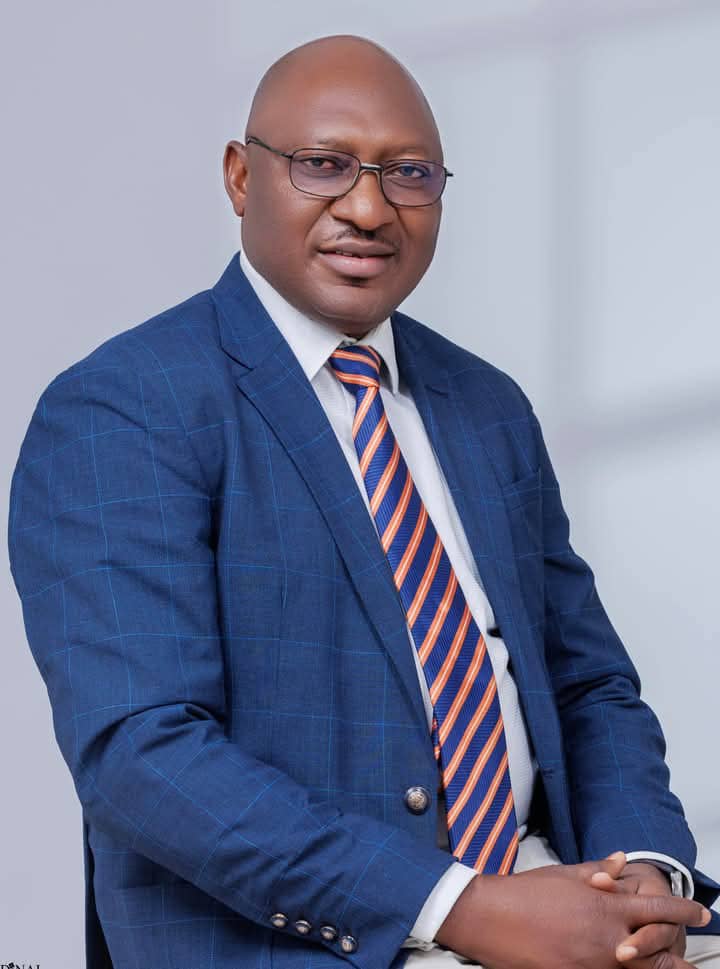
Hon. Professor Paul Sunday Nnamchi, was among the twenty eminent Nigerians including seating governors of four states who were honoured by the Verbatim Magazine at the Late General Yaradua Centre recently.
He was recognized by the investigative journal for excellence and quality leadership in legislative performance for year 2024 based on his contributions in the plenary of the House of Representatives, the number of Bills and motions he has sponsored so far.
Professor Nnamchi was last year rated the most performing legislator from the southeast by the authoritative organ of the National Assembly, “The Order Paper” which evaluates the work rates of the legislators annually.
As at the end of March, 2025, the lawmaker who represents Enugu East/Isi Uzo Federal Constituency in the 10th House of Representatives has sponsored thirty-six Bills and over twenty impactful motions in the House. Over twenty of the Bills have passed second reading.
Speaking at the well attended Verbatim 13Th Anniversary Lecture delivered by the Executive Governor of Nasarawa State, Engineer Abdullahi Sule, the magazine Editor, Mr Tobs Agbaegbu, affirmed that the awardees were carefully selected through in-depth evaluation and investigation by its team of editors.
He stressed that the magazine has established itself as a leader in investigative journalism and as such would not be associated with questionable awards that lack merits.
The award recipients cut across private and public sectors’ practitioners, governors, legislators, military officers and journalists all of whom had distinguished themselves in leadership as Trail Blazers in their chosen careers.
News
Just in: Presidency Insists INEC Chairman, Yakubu Not Sacked
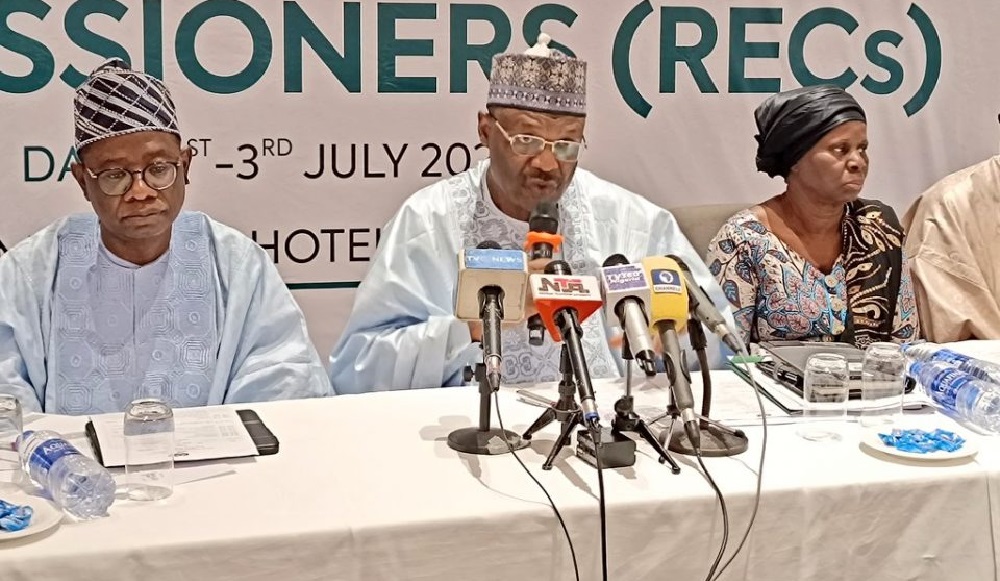
By Kayode Sanni-Arewa
The presidency has debunked reports that the INEC Chairman, Mahmood Yakubu has been replaced, describing it as ‘fake news.’
“Disregard any fake news making the rounds about the replacement of the INEC Chairman.
“Any such announcement will come from the SGF’s office or the any other official source.” – O’tega Ogra, Senior Special Adviser to President Bola Ahmed Tinubu on Digital Media and New Media.
News
Just in: Saudi Arabia Suspends Visa Issuance to Nigeria, 13 Other Countries
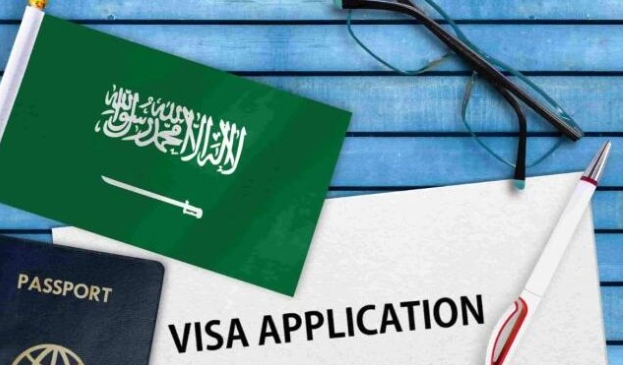
By Kayode Sanni-Arewa
Umrah, business, and family visit visas for citizens of 14 countries, including Nigeria, Egypt, and India, as part of preparations for the upcoming Hajj season.
Officials speaking to ARY News said, “The suspension of Umrah, business, and family visit visas is aimed at preventing unregistered individuals from attempting to perform the pilgrimage.”
The move comes amid concerns over the rising number of pilgrims attempting to join Hajj without official permits. In recent years, many visitors have overstayed their visas, contributing to overcrowding and serious safety risks.
Authorities also expressed concern over the misuse of business or family visit visas by individuals who enter the Kingdom and work illegally, a violation that “disrupts the labour market and breaches visa conditions.”
The Saudi foreign ministry stated that the new measures were implemented “to streamline travel procedures and enhance safety during Hajj.
It added, “Individuals found to be staying in the Kingdom illegally may face a five-year entry ban.”
The countries affected by the ban are India, Pakistan, Bangladesh, Egypt, Indonesia, Iraq, Nigeria, Jordan, Algeria, Sudan, Ethiopia, Tunisia, Yemen, and Morocco.
-
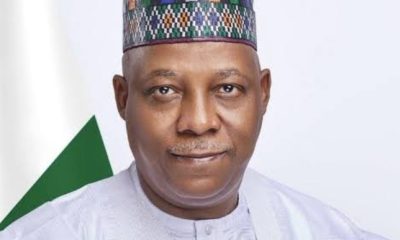
 News16 hours ago
News16 hours agoAPC opens up over alleged rift between Tinubu and his deputy, Shettima
-
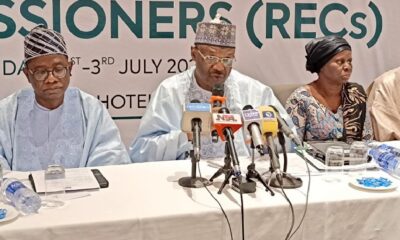
 News11 hours ago
News11 hours agoJust in: Presidency Insists INEC Chairman, Yakubu Not Sacked
-
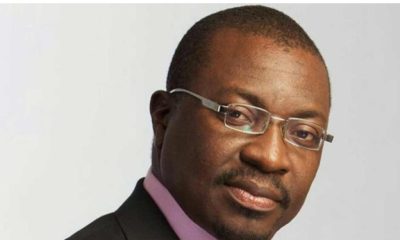
 News16 hours ago
News16 hours agoVeteran comedian opens can of worms, says I ‘ve caught many of my friends wives flirting with big men, govs
-
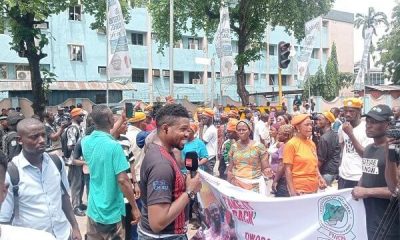
 News12 hours ago
News12 hours agoJUST IN: Police Nab leaders of April 7 nationwide protest
-
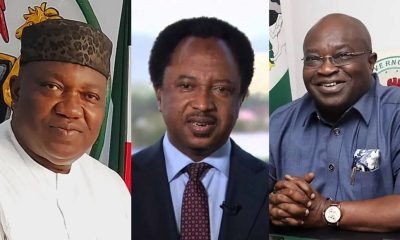
 News23 hours ago
News23 hours agoIkpeazu, Ugwuanyi, Shehu Sani, Omokri, others make ambassadors’ list
-

 News23 hours ago
News23 hours agoPolice warn against planned nationwide protest
-
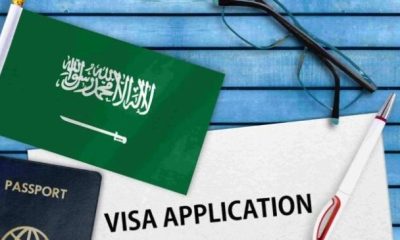
 News11 hours ago
News11 hours agoJust in: Saudi Arabia Suspends Visa Issuance to Nigeria, 13 Other Countries
-

 Economy16 hours ago
Economy16 hours agoSEE Black Market Dollar To Naira Exchange Rate In Lagos, FCT, April 7th 2025




